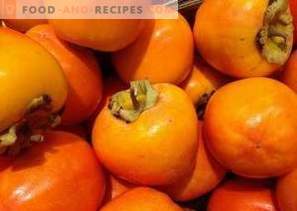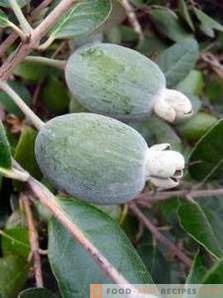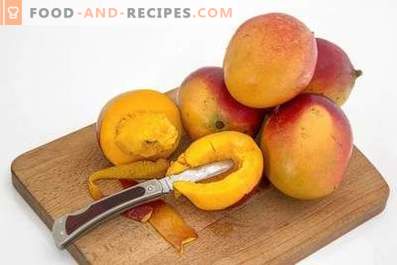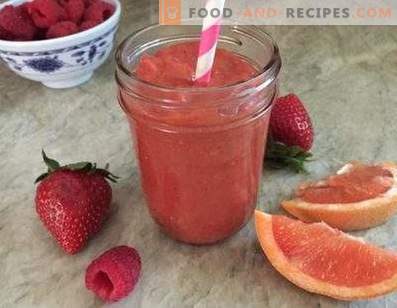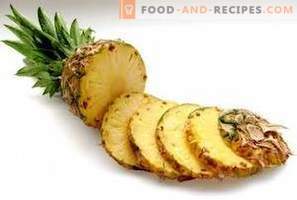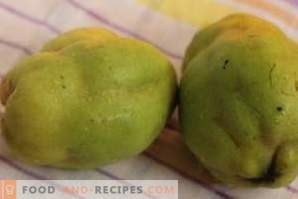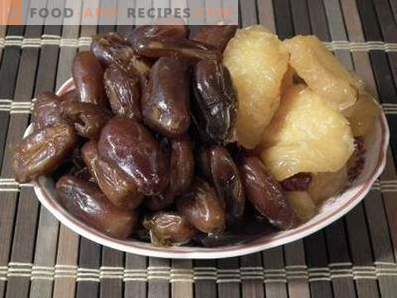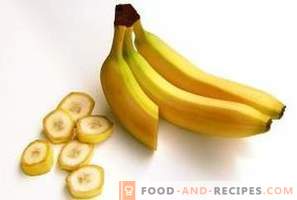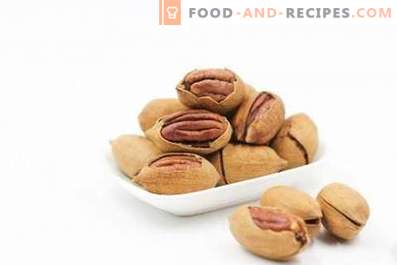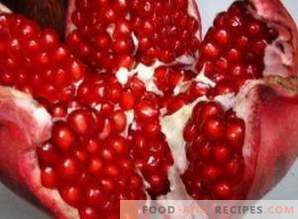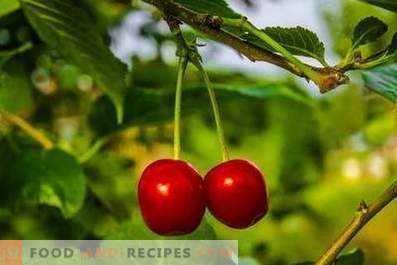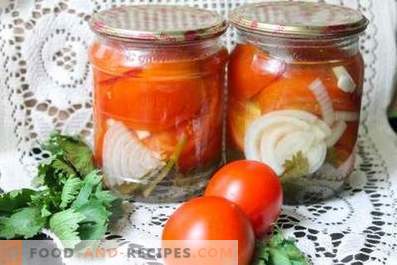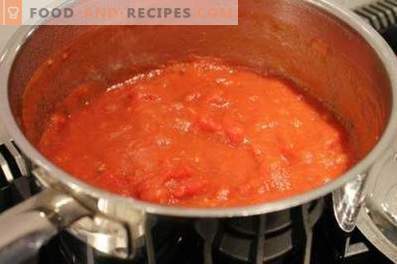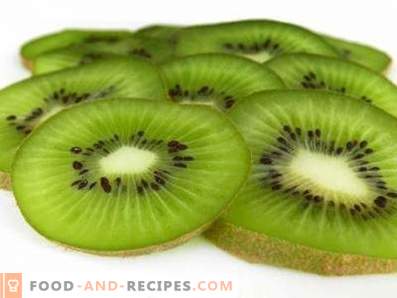
Kiwi is a cultivar of plants belonging to the genus Aktinidia, in particular to the species Akinidia delicacy or Chinese Actinidia. Fruit culture grows in the form of massive tree-like lianas, and by the name of the historical homeland the fruits are called “Chinese gooseberries”.
The name “kiwi” was given to the fruit for the reason that its fluffy rind makes the fruit look like a small bird with the same name. For the first time, Kiwi carried out the production of culture, and the emblem depicted exactly the bird.
The fruits of wild kiwi were very small (weighing no more than 35 g) and appeared in New Zealand only in the first quarter of the last century. It was the New Zealand breeders who created the domesticated Chinese actinidia. Scientists managed to increase the size of the fruit (weight reached 100 g) and make the taste more pleasant and sweet. The plant began to be considered an absolutely unique species growing in New Zealand - a country with a kiwi bird on the emblem. Currently, the fruit tolerates the subtropical climate of different regions. Along with New Zealand, Italian and Chilean producers are actively involved in exporting fruit. In Russia, experimental plantations of plants appear on the Black Sea coast and in the southern regions of Dagestan.
Biologists call Kiwi deciduous woody climbing vines. Young thin shoots of kiwi can twist around a solid support like a vine. The diameter of the leaves reaches 17-20 cm, and in shape they resemble a heart or a circle. Home-made kiwi belongs to dioecious plants, that is, flowers of the female and male sex are located on different trees. To obtain a crop on a plantation, it is required to plant several plants with a female type of flower, evenly distributing male trees throughout the site. Outwardly, these flowers are very similar: diameter 5-6 cm, 5 petals white, collected in compact inflorescences. But on female plants pollen is not viable, and male flowers lack a pistil. Pollination can occur only with the participation of insects and wind. The fruit of a plant is often called a fruit, but in terms of the biology of kiwi fruit is a berry. The mass of the oval fruit varies from 40 to 150 g. The thin green-brownish skin is covered with hairs, but in ripe kiwis they quickly wear out. When harvesting, the stem remains on the tree. For ripe kiwi fruit, the flesh should remain green with a slight purple hue. It contains more than 1000 small black seeds, and in the center is a white heart. A known variety is the “golden kiwi” (Gold kiwi), named after the unusual yellowish color of the pulp. To taste, the fruit resembles at the same time gooseberry, banana, melon, strawberry and pineapple. Kiwi use fresh and create on their basis complex desserts (jams, marmalades, jellies), used as an additive to salads. In the peel of the berries are a lot of antioxidants (even more than in the pulp). It is known to be an antiseptic, but doctors advise against using kiwi for people with very sensitive mucous membranes in their mouths.
Food and vitamin value of kiwi
Kiwi is surprisingly good for the body. It contains many vitamins of groups A and B, as well as a phenomenal share of ascorbic acid (an excess of vitamin C is felt even to taste). For this reason, one kiwi berry per day is able to provide effective prevention of colds and flu, while increasing immunity and overall body tone. Kiwi components are also able to normalize the functioning of the digestive system. Separately, it should be noted that when preserved, kiwi fruit does not lose most of its vitamins and retains almost all mineral elements due to its high acidity.
Nutritional value 100 g of kiwi:
- 0, 822 g of proteins
- 0, 421 g of fat
- 8, 423 g of carbohydrates
- 3, 823 g of dietary fiber
- 2, 541 g of organic acids
- 83, 825 g of water
- 0, 133 g of unsaturated fatty acids
- 0, 133 g of saturated fatty acids
- 7, 852 g of monosaccharides and disaccharides
- 0, 324 g of starch
- 0, 622 g of ash
Vitamins per 100 grams of kiwi:
- 0.092 mg of beta-carotene (vitamin A provitamin)
- 15, 252 μg of retinol equivalent (A)
- 180, 25 mg of ascorbic acid (C)
- 0.023 mg of thiamine (B1)
- 0, 042 mg of riboflavin (B2)
- 023 mg pyridoxine (B6)
- 18, 541 μg of folic acid (B9)
- 0.412 mg of vitamin PP
- 0, 522 mg of niacin equivalent (PP)
- 0, 323 mg of tocopherol (E)
Kiwi Energy Value
Kiwi belongs to low-calorie foods. It is often used in various diets, which is also associated with the presence of enzymes that break down fats. Small kiwi seeds provide the body with fiber, which stabilizes digestion and shortens the time it takes to digest food. Fruits contain soluble dietary fiber, absorbing liquid and increasing the sensation of the bulk of the stomach, suppressing the appetite.
- The caloric value of 100 g of kiwi is 46 kcal.
- The caloric content of 1 medium-sized fruit (60 g) is 27, 6 kcal.
Since the berry helps the work of digestion, it is recommended to use it after a meal. The fruits relieve the feeling of heaviness in the stomach and facilitate the work of the kidneys. Many diets are based on regular use of kiwi (for example, 5 fruits per day). Unloading day can be carried out by eating about a kilogram of these berries and using clean water.
Kiwi mineral composition
Kiwi berries contain such a set of minerals that it can be made part of even a rather monotonous diet. A large proportion of potassium is of paramount importance for the cardiovascular system and the formation of strong bones, teeth and nails. Green kiwi pigment contains a lot of magnesium, which is necessary for normalization of heart rhythms. Some components of kiwi in combination with proteins in the body stimulate brain activity. Macroelements at 100 grams of kiwi:
- 40, 031 mg of calcium (Ca)
- 300, 231 mg of potassium (K)
- 25, 022 mg of magnesium (Mg)
- 34, 054 mg of phosphorus (P)
- 5, 021 mg of sodium (Na)
- 47, 012 mg of chlorine (Cl)
- 15, 032 mg of sulfur (S)
Trace elements in 100 g of kiwi:
- 0, 812 mg of iron (Fe)
- 0, 303 mg of zinc (Zn)
- 2, 041 mcg of iodine (I)
- 135, 023 μg of copper (Cu)
- 0, 217 mg of manganese (Mn)
- 14, 034 μg of fluorine (F)
- 10, 132 mcg of molybdenum (Mo)
- 100, 151 µg of boron (B)
- 1, 025 mkg cobalt (Co)
- 815,027 μg of aluminum (Al)
Useful properties of kiwi
- Kiwi fruit significantly strengthens the immune system and accelerates the production of collagen. Due to the high content of potassium berries normalize blood pressure. Traditional medicine in China has long used kiwi for the prevention of gastrointestinal diseases, rheumatism, the formation of kidney stones, nervous exhaustion, early appearance of gray hair. Fruits normalize the work of the stomach, gallbladder, intestines, muscle tissue, and reproductive system. After a person eats a kiwi, internal tissues cope better with integrity problems and incoming compounds. Kiwi as a whole has a healing effect on the body, which is still actively used in medicine today.
- Studies have shown that kiwi berries are inhibitors of the formation of nitrosamines (that is, they slow down the formation of these harmful components).
- Experimentally proven antitumor and antioxidant effects of fruit. After eating 1-2 fruits, vigor and performance noticeably increase.
- Kiwi is a real record holder for vitamin C content (only black currant outruns this berry in ascorbic acid concentration). The fruit of kiwi in this sense is equivalent to one orange or three tomatoes. 100 g of the fetus contains a dose of ascorbic acid, which is four times the required daily dose of this vitamin. Due to the dense skin and a large amount of acid during storage of kiwi fruit, the concentration of vitamin C in it is not reduced.
- Eating only one kiwi after ingesting oily, hard-to-digest food eliminates the feeling of heaviness in the stomach and heartburn.
- Norwegian researchers concluded that kiwi effectively helps people with heart disease. Fruits actively burn fat, so the arteries are almost not blocked and blood clots cannot form.
- Vitamin C in kiwi flesh increases the body's resistance to stress and seasonal colds, strengthens the immune system.
- The beneficial properties of kiwi have found application in cosmetology. A variety of masks based on kiwi pulp tone the skin, even out the color and whiten it slightly.
Contraindications to the use of kiwi
- Kiwi fruit is not recommended for use in diarrhea and diseases of the bladder, kidneys, and stomach. The beneficial effect of berry pulp is best seen when applied to the body without serious complications in these systems.
- In people with individual intolerance to kiwi, tongue swelling, asthmatic breathing, and even dermatosis of the throat appear. It is dangerous to immediately eat a lot of fruits of kiwi, especially for children.
- Kiwi can cause allergies, so fetuses are practically contraindicated in infants. Pregnant women should be careful to include these berries in your diet: if before the allergy did not occur, then you can use kiwi.
